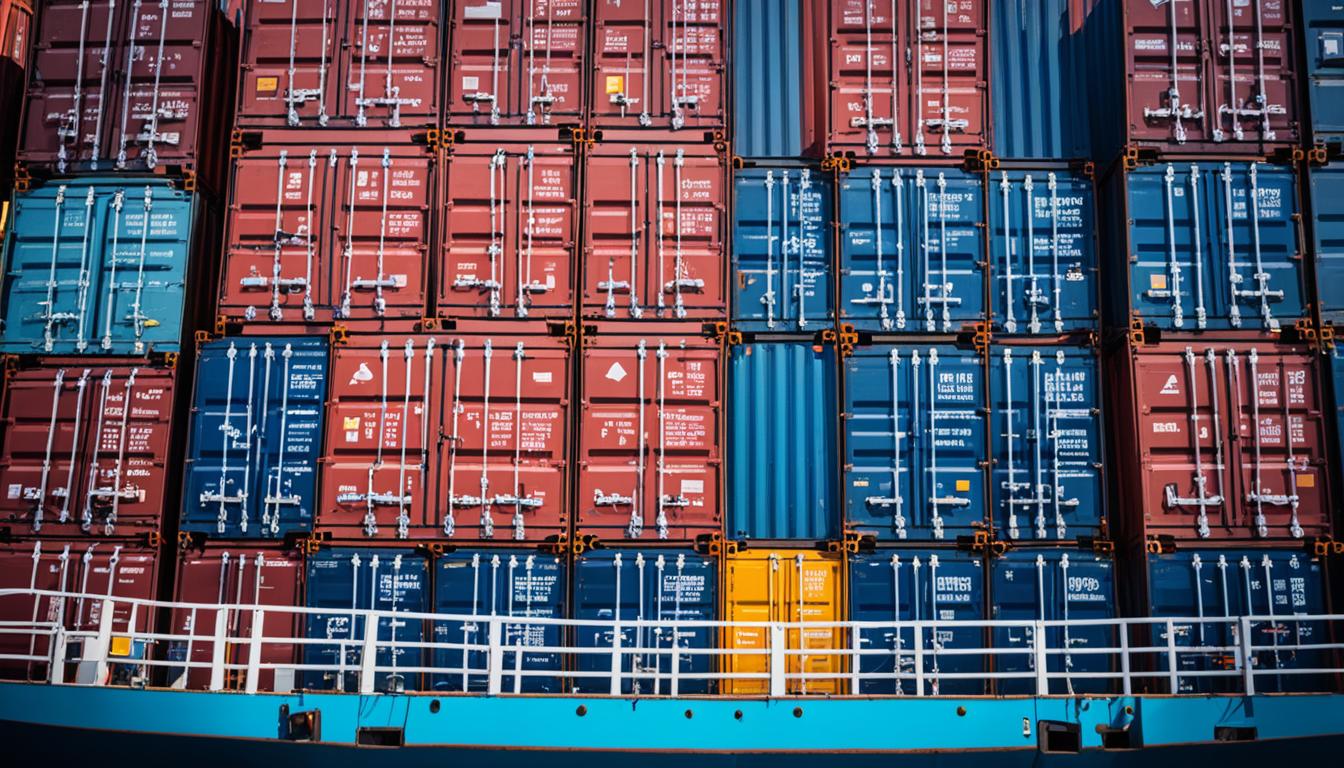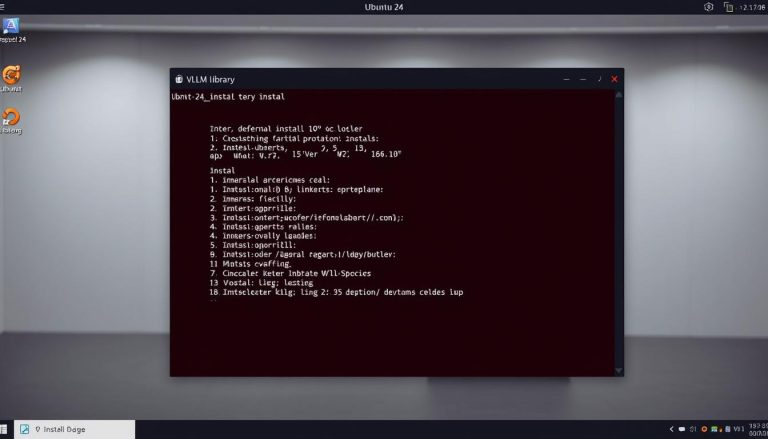Efficiently Stop All Containers in Docker
Ever wondered how to stop all running containers in Docker quickly without trouble? For many, managing Docker containers can be tough, like conducting a symphony. The key is knowing the docker stop command and using it effectively.
The command docker stop $(docker ps -a -q) can stop all containers at once. Stopping all containers easily sounds good, but think about the effects, especially if services stop suddenly. It’s like turning off all lights in a house or using the docker rm command to delete containers.
These commands are great for system admins who need to manage Docker quickly and well. But, they must be used carefully to avoid problems. In this article, I’ll show you how to use these commands wisely to manage your containers smoothly.
Key Takeaways
- The docker stop command is key for stopping containers quickly.
- Using docker stop with docker rm removes containers but be careful.
- Executing docker stop $(docker ps -a -q) stops all containers right away.
- It’s important to know how it affects services and tasks.
- Using Docker commands wisely helps avoid problems and keeps containers running smoothly.
Quick Overview of Docker Stop Commands
Working with Docker means knowing how to stop and manage containers well. You have several commands to choose from, each with its own purpose. This guide will cover the docker stop and docker rm commands, along with their syntax.
Using the docker stop Command
The docker stop command helps you pause running containers. To stop all containers at once, use docker stop $(docker ps -a -q). This command finds all active containers and stops them nicely. If docker stop all does not work, you might need to look into other commands or issues.
Understanding the docker rm Command
After stopping containers, the docker rm command removes them from Docker. Using docker rm $(docker ps -a -q) is similar to stopping containers but removes them. But, be careful with docker rm -f, as it can force stop containers and might lose data.
Command Syntax and Their Purposes
Knowing Docker command syntax is key to managing containers well. The docker ps -a -q command is crucial for listing containers. Combining it with docker stop or docker rm makes managing containers easier. The docker system prune command also helps clean up unused resources, keeping Docker neat and efficient. For more details, check out this resource on managing containers.
In short, docker stop helps pause containers, and docker rm removes them. Use these commands carefully, especially in scripts, to prevent mistakes.
How to Stop All Containers in Docker
Knowing how to stop all Docker containers efficiently is key to managing them well. This keeps your system tidy and saves resources. Here’s a simple guide to help you do just that.
Step-by-Step Guide
To stop all containers in Docker, follow these steps:
- First, list all running containers using the command:
1docker ps -q
. This will give you the container IDs of all active containers.
- Next, execute the stop command:
1docker stop $(docker ps -q)
. This halts all running containers.
- If you need to remove them after stopping, use:
1docker rm $(docker ps -a -q)
.
For more detailed instructions on these commands, you can visit this comprehensive guide.
Important Considerations
When stopping all containers in Docker, be mindful of those with interdependencies. Stopping them suddenly can disrupt linked services and lead to data loss, especially with docker rm -f. Always aim for a controlled shutdown by stopping containers first.
Regular maintenance is key. Clearing out unused containers and images keeps your system running smoothly. By following best practices, like scheduled cleanups, you can make your Docker environment more reliable.
Use Cases for Stopping All Containers
Stopping all Docker containers is handy in many situations. It’s great for resetting your environment quickly or troubleshooting without restarting the host machine. For developers, it makes clearing out temporary containers easier during testing cycles.
Learning how to stop all Docker containers efficiently can greatly improve your Docker workflows. Whether you’re using docker stop all running containers commands or want more detailed control, following these tips ensures a smoother Docker experience.
Efficient Management of Docker Containers
Managing Docker containers well is key for smooth and scalable operations. By following a few important practices, admins can boost performance, security, and ease of use.
Best Practices for Managing Containers
It’s vital to regularly remove stopped containers to manage Docker containers well. This action frees up resources, especially when docker stop all does not work. It also helps in situations where you need to stop all running containers effectively.
Graceful Shutdown vs Forceful Termination
Always choose graceful shutdowns over forceful ones. This approach protects data and reduces system disruptions. When you need to docker stop all containers under heavy load, a graceful shutdown is best. It ensures a smooth process without sudden stops.
Cleaning Up Dangling Images
Removing dangling images is also crucial for container management. These images, left over after docker stop all running containers, take up space. Use the command
1 | docker rmi $(docker images -f "dangling=true" -q) |
to delete them and free up space.

Key Challenges and Solutions
Managing Docker containers can be tough, especially with issues like optimizing resources, managing costs, and improving performance. But, there are smart ways to tackle these problems. For example, using commands like docker ps, docker kill, and docker rm helps keep workflows smooth and saves resources.
Stopping many running containers at once can be a big challenge. The solution is to use the docker stop all containers using CLI command. This makes stopping all containers easy, which is key for managing large numbers of containers efficiently.
It’s also important to know the difference between stopping and killing containers. docker stop lets containers shut down gracefully, while docker kill stops them quickly and frees up resources. Finding the right balance between these methods helps avoid sudden stops and ensures resources are used well.
Security and isolation are also key when managing containers. Tools like Kubernetes help improve security and make managing containers easier. They support better use of resources and scalability. Automated deployments help streamline operations, making things more flexible and cost-effective.
Being able to use commands like docker stop all running containers efficiently is crucial. Automating container management also helps create a dependable environment. These strategies improve performance and reduce costs, leading to better productivity overall.
Conclusion
Mastering the docker stop and docker rm commands is key in Docker management. These commands help manage Docker containers efficiently.
Using the docker stop command correctly keeps applications running well in different settings. It helps keep the environment stable and efficient. This makes Docker a vital tool for managing modern infrastructure.
Understanding Docker commands well can make processes smoother, keep things running consistently, and boost efficiency. Use these commands carefully for strong and reliable containerization. This is what makes Docker management efficient.
FAQ
How do I stop all containers in Docker?
What is the difference between `docker stop` and `docker rm`?
Can I force stop all containers in Docker?
What should I consider before stopping all Docker containers?
What is the proper syntax for stopping and removing all containers?
Why might `docker stop all` not work as expected?
What are some best practices for Docker container management?
How do I handle dangling images in Docker?
What challenges might I face in managing Docker containers?
Are there solutions for stopping all containers using CLI?
Source Links
- https://ioflood.com/blog/docker-stop-all-containers-one-command-to-stop-and-or-remove-every-docker-container/
- https://ultahost.com/knowledge-base/list-start-stop-docker-containers/
- https://coderwall.com/p/ewk0mq/stop-remove-all-docker-containers
- About the Author
- Latest Posts
Janina is a technical editor at Text-Center.com and loves to write about computer technology and latest trends in information technology. She also works for Biteno.com.






